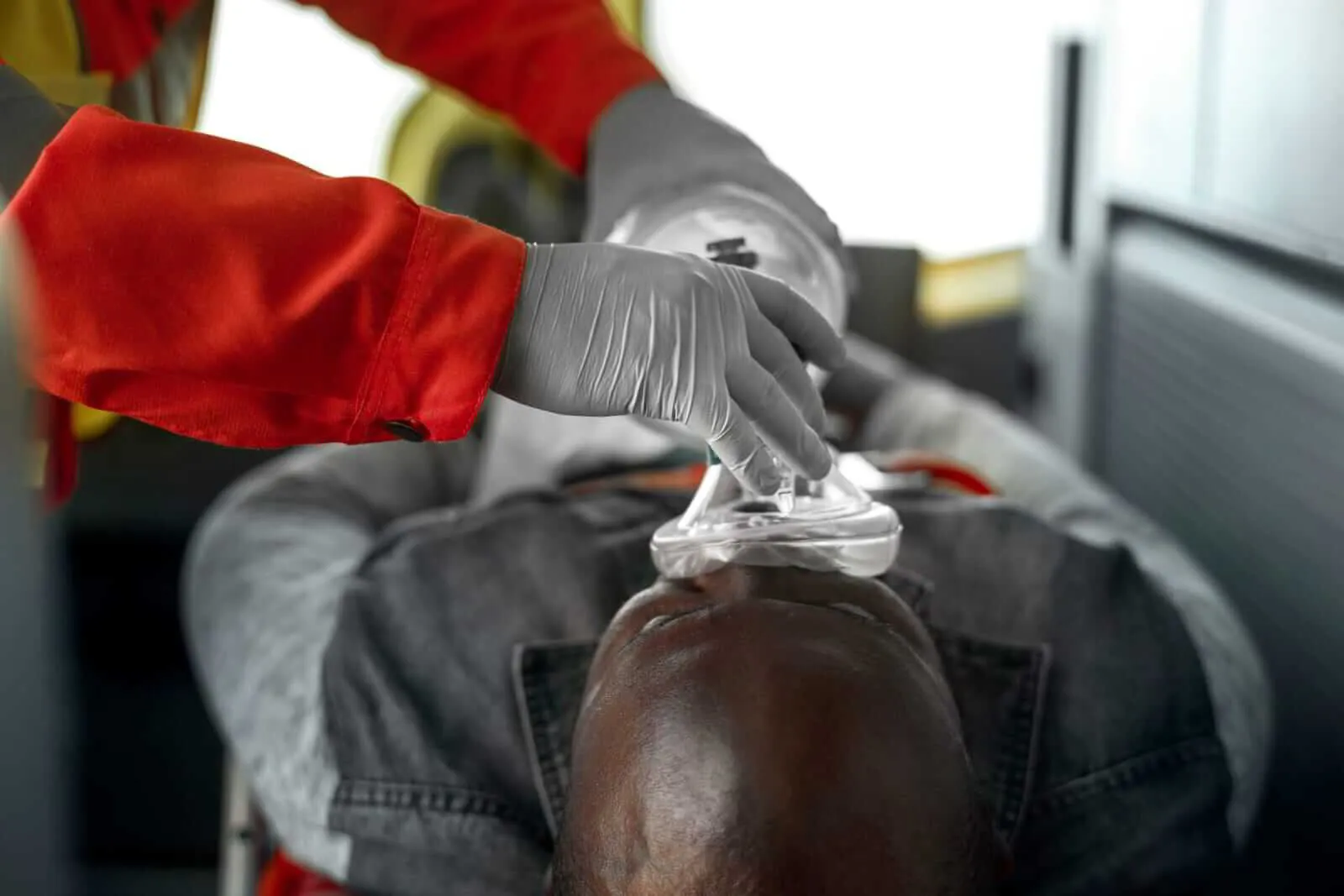BASIC AMBULANCE ASSISTANT REFRESHER COURSE
What is the BAA Refresher Course?
The Basic Ambulance Assistant Refresher course is intended for the BLS Paramedic wishing to update or refresh his/her skills to be able to improve their patient treatment, earn their required annual CPD points, or prepare them for the HPCSA Board Exam for BAA Restoration Purposes. Please note that passing the BAA Refresher course does not mean that you will be restored to the BAA role, you will need to pass the HPCSA Board exam first.
Our Basic Ambulance Refresher course is CPG Update ready.
What is Covered in the BAA Refresher Course?
On completion of the BAA Refresher course, successful candidates would gain valuable knowledge on the following topics:
- Ethics – This chapter prepares the BAA practitioner to deal with medico-legal issues, learns them about their ethical responsibilities, and how to deal with and solve ethical dilemmas.
- Airway Management – Airway management is a crucial part of a seriously sick or injured patient. The BAA practitioner is taken through the basic anatomy and physiology of the airways, assessment, and basic management techniques of the airways, along with oxygenation techniques.
- Cardiovascular Emergencies – Adequate circulation is crucial in keeping patients alive. During this chapter, we explore the basic anatomy and physiology of the circulatory system, identification and treatment of cardiac arrest, shock, and various coronary syndromes and cardiac injuries. The BAA paramedic will also be introduced to basic ECG identification, even though it is not part of their scope of practice.
- Respiratory Emergencies – In this chapter, the basic anatomy together with the various medical and trauma emergencies are covered along with their various treatments.
- Neurological Emergencies – Neurological Emergencies cover various traumatic injuries to the brain and spine along with medical emergencies like seizures, dementia, delirium, and Cerebrovascular Accidents.
- Gastrointestinal Emergencies – Medical gastrointestinal emergencies are often overlooked; in this chapter, we dive into commonly encountered gastrointestinal emergencies caused by various medical and traumatic events.
- Metabolic & Endocrine Emergencies – Diabetes is a condition most BAA practitioners are faced with daily. We also look at various causes of acidosis and alkalosis.
- Poisoning & Overdose Emergencies – Poisoning as well as overdose of various prescription medications and illegal drugs are discussed along with their treatments.
- Gynaecological and Obstetric Emergencies – All the new practical components of breech delivery from the BAA CPG Updates are discussed along with all the other gynaecological and obstetric emergencies that practitioners might be faced with prehospitally.
- Burns, Musculoskeletal, & Vascular Emergencies – Burns, fractures, sprains and strains, and vascular incidents are often seen in traumatic injuries. We look at the anatomy and physiology of the various systems and how to treat the various injuries appropriately. Haemostatic agents and tourniquets for uncontrollable bleeding have been included.
- Psychiatric Emergencies – Psychiatric patients may present themselves as either calm and cooperative or extremely violent. The correct way to approach and deal with these patients is discussed.
- Environmental Emergencies – Various environmental injuries are discussed including various animal bites and stings, effects of high and low temperatures, and drowning along with the appropriate treatment of each.
- Approaching the Patient – The correct way to approach your patient is discussed in detail including scene safety, triage, primary and secondary surveys, vital signs, and the SAMPLE history.
Who Can Benefit from this Course?
Any qualified Basic Ambulance Assistant will benefit from this exciting and in-depth Basic Ambulance Assistant Refresher course whether they are currently registered with the HPCSA or not, or whether they are working operationally or remote site. This course will assist you with updating your skills and knowledge to be up-to-date with the latest research and best practice.
This course provides 15 CPD points (13 CEUs + 2 Ethics) which is the annually required number of points required by a BAA Practitioner to remain registered with the HPCSA.
If your HPCSA registration has lapsed and you need to restore your BAA Registration with the HPCSA the requirements are as follows (according to the latest HPCSA Restoration Guidelines dated May 2022):
- 0-2 years since removal from the register – Obtain 15 CPD points before applying to the HPCSA for BAA Restoration. Another 15 CPD points must be obtained in the first 12 months after your BAA Registration was restored.
- 2 years and since removal from the register – Following payment of arrear fees, BAA practitioners will have to pass the HPCSA Board examination. The Board examination includes various OSCEs, a written assessment, an adult patient simulation, as well as a paediatric simulation. These exams may be attempted twice whereafter additional attempts will not be allowed. A Refresher course from an approved provider is not required, however, we highly recommend doing our BAA Refresher course to prepare you for the BAA Board Examination for Restoration Purposes.
How is this Course Presented?
The Basic Ambulance Assistant Refresher course was developed, reviewed, and will be presented by experts with many years of experience in the Prehospital Emergency Care setting. Keeping the cost of travelling and availability in mind the BAA Refresher course was approved by the University of Johannesburg as a semi-correspondence course.
Candidates will receive their training material via courier which includes an A5 training manual, a Workbook, and a BAA Drug Protocol booklet. The Workbook must be completed prior to the start of the BAA Refresher course, after which candidates will have to attend a 2-day session which consists of a half day of discussions regarding important points followed by various assessments. Successful candidates will receive a certificate for both the Basic Ambulance Assistant Refresher Course and the CPG Update which will automatically be uploaded to the HPCSA database.
How is this Course Assessed?
The Basic Ambulance Assistant Refresher course is mostly a correspondence course and on completion of the workbook candidates will be assessed.
Successful candidates must pass 6/8 OSCEs, the Patient Simulation, the Written Assessment, as well as the Workbook. A second attempt at the assessment will be available should a candidate be found not yet competent.
15 CEU points (2 Ethics)
Book today to start your:
BASIC AMBULANCE ASSISTANT REFRESHER COURSE
Following This Course
Other Courses that might interest you.
BAA CPG Update
Upskill your protocols to meet the new BAA CPG requirements!
- Duration: 1 Day
- Accreditation: University of Johannesburg
- Learning material includes A5 Colour Manual, Workbook, and BAA Protocol Booklet
- CPD points: 15 CEU points (2 Ethics)
- Certification on completion
- Long-distance training with a 1-day contact session for discussions and assessments
- Prerequisites: Basic Ambulance Assistant course
Course Price: R1 850.00

